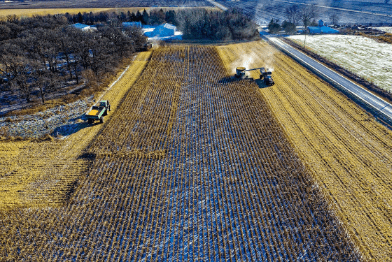Did you know that the first farmers in the world were Native Americans? Or that farming is responsible for more than one-third of the world’s greenhouse gas emissions? If you’re interested in learning more about farming, then you’ll want to read on. In this blog post, we will discuss six interesting facts about farming that you probably didn’t know. We’ll also provide some tips on how to reduce your carbon footprint as a farmer. So, without further ado, let’s get started!
6 Farming Facts You Should Know
Farming has been the primary source of food for humans since the beginning of time, but there’s a lot more to farming than meets the eye. Although in the past people were mostly hunting for food, once farming became more mainstream, it revolutionized the human diet. Whether you need to know how often to clean your chicken coop, or you want to learn about seeds and how they’re used, here are six interesting facts about farming that you probably didn’t know. More importantly, the more you know about farming as a whole, the better you can approach further projects or plans.
1. Farming has been around since 10,000 BC
If we are to go way back in time, we find out that farming has been an important part of human civilization since around 10,000 BC. Back then, people started growing wheat and barley in the Middle East and China. This allowed them to have a stable food supply, and this was one of the first steps toward establishing cities and civilizations. This type of agriculture is known as subsistence farming, which focuses on providing for the family or a small community.
2. It takes approximately 500 gallons of water to produce a pound of beef
Beef production is one of the most water-intensive farming practices. It takes about 500 gallons of fresh water for every pound of beef produced. That’s why sustainable farmers have started using efficient irrigation methods, such as drip irrigation systems, to reduce their water consumption and carbon footprint. If you are to make a difference, you can support sustainable farmers by buying their products.
3. The US uses 10 percent of its land for farming
The US has a large portion of its land dedicated to farming. According to the USDA, about 10 percent of all US land is used for agriculture and animal husbandry. This includes everything from corn fields in Iowa to cattle farms in Montana. Furthermore, the US is one of the largest producers of food in the world, producing close to 20 percent of all global agricultural output. The US agricultural industry is responsible for employing more than 1.6 million people and contributing $1 trillion to the US economy.
4. Cattle feed accounts for 80 percent of agricultural emissions
When it comes to greenhouse gas emissions, cattle feed is the leading contributor. Cattle are responsible for nearly 80 percent of all agricultural emissions, making them a major player in global warming and climate change. As such, farmers have been looking for ways to reduce their carbon footprint by using sustainable practices that can limit the environmental impact of their operations. Furthermore, some farmers have started using feed additives, such as microbial enzymes, to help reduce methane production in their cows.
5. There are more than 100 types of rice
Rice is, in fact, one of the most important crops for the entirety of the human race. It’s a staple food for many cultures and provides nutrition to billions of people around the globe. But did you know there are more than 100 different types of rice? From jasmine rice to Italian arborio, each type has its own unique flavor and characteristics. On the other hand, rice can be a water-intensive crop, so sustainable farmers have started using innovative techniques to reduce their water consumption.
6. Aquaculture is the fastest-growing form of farming
Aquaculture, or fish farming, is quickly becoming one of the most popular types of farming around the world. It’s an important source of protein, and it can help to reduce overfishing in our oceans. According to the FAO, aquaculture is the fastest-growing form of animal food production in the world, and it’s expected to keep growing over the next few decades. Moreover, it can also be a sustainable form of farming, as long as it’s done responsibly.
As you can see, there’s much more to farming than just planting seeds and plowing fields. From aquaculture to cattle production, modern farmers are finding innovative ways to produce food in an efficient and sustainable manner. This is critical for the future of our planet and the health of our communities. So, the next time you bite into a hamburger or take a sip of beer, remember all the hard work that went into getting it to your plate.


